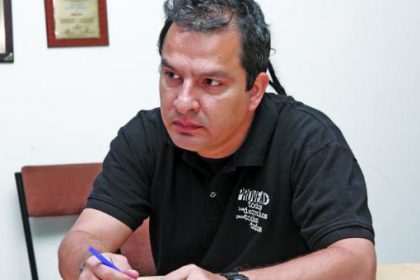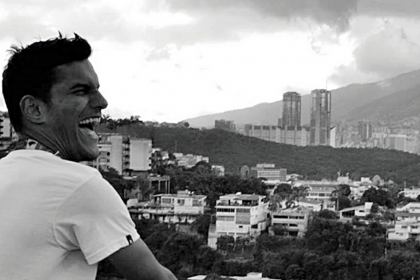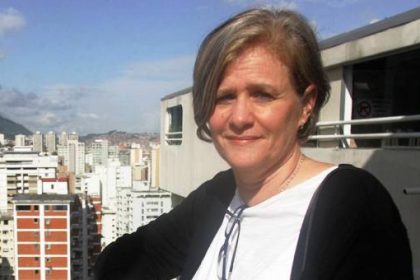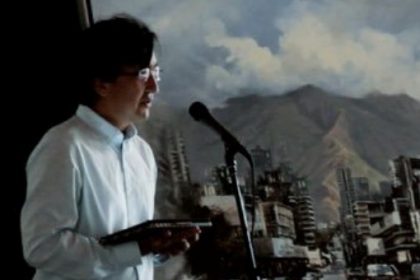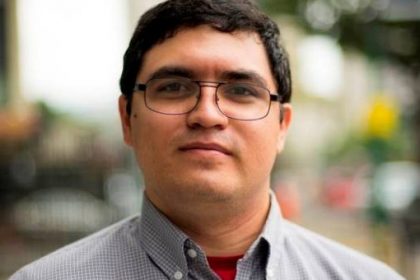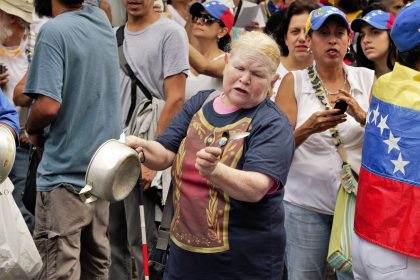By Francisco José Virtuoso Arrieta
Chairman of Universidad Católica Andrés Bello
The days that range from April to 31 July 2017 will remain in the collective memory as one of the most tragic periods in Venezuela. President Maduro’s government, through the Armed Forces and the state security bodies under his command, declared war to the protest and rebelliousness that more than half of the Venezuelan population openly demonstrated in the streets and through other means against his public policies and his efforts to substitute the National Constitution in force with a legality served to his hegemonic vision.
Protest and repression
The report of the UN’s Office of the High Commissioner on Human Rights (OHCHR) highlights a number of grave violations to the human rights in the context of massive protests within the Bolivarian Republic of Venezuela, which occurred from 1 April to 31 July 2017. Indeed, the report concludes:
From 1 April to 31 July, the Public Ministry registered 124 deaths related to the demonstrations. The civil society organisations registered 157 deaths during the same period. Most of the victims were young males -27 years old in average-, but 15 children and 7 women also died. In general terms, the victims were students or people who just finished studying.
…The existence of generalized violations to the human rights on behalf of the national authorities within the context of demonstrations performed throughout the entire country were aimed at stop any kind of protest against the government… it was certified that the security forces have systematically used the excessive force and performed arbitrary detentions to people who participate in demonstrations. It is also certified the patterns of mistreatments that, in certain cases, may constitute torture, ill-treatment and serious violations to the due process by the Venezuelan authorities to people detained for demonstrating.
There are no official data on the number of people who have been detained in the context of the protests. According to NGO sources, 5,051 people, including 410 children, were arbitrarily detained from 1 April to 31 July and over 1300 people were still detained on 31 July… some detentions may constitute forced disappearance. In addition, a pattern of violent and illegal raids to housing was documented across the country. Generally speaking, the security forces have performed such raids and destroyed private property intentionally and unnecessarily. This act of violence may imply that the raids were aimed at infusing fear among the communities in order to persuade them from protesting.
The university under siege
As the political conflict has been increasing in the recent years, the university has been subject of diverse methods of harassment and trampling by the multiple state organisms, governmental speakpersons or the political regime supporters. As it is reflected in the report Situation of the Academic Freedom and University Autonomy in Venezuela of October 2017:
The Venezuelan Universities have been and continue to experience the progressive deterioration of their autonomy, as well as of the academic freedom of its constituents. This represents the direct violation to their education rights, which affects other rights at the same time, such as the freedom of speech, peaceful assembly and association with serious consequences and human rights costs to the right to life, physical integrity, personal freedom and due process.
The fundamental cause of this siege lies on the fact that autonomous universities have played a very important and critical role in the face of the government’s public policies. Their students, professors and employees have acted as political avantgardes in the actions of public protest against the hegemonic actions of the government from year 2002 onwards. Thus, the university communities have a long history in which testimonies abound of how their members have been target of numerous arbitrary detentions, prosecutions and violent attacks related to academic and/or political expression.
In the protests of April-July 2017, the students, teachers and employees of the autonomous universities -both national and private- had a leading role. Following the parameters of previous similar situations, especially in 2009 and 2014, the repressive policies of the government were directed especially toward them and their houses of study, being in this occasion especially severe the systematic repression exerted through actions like: the excessive use of the force against demonstrators, causing hundreds of wounded and several dead people, the use of conventional and unconventional weapons, massive and arbitrary arrests, the raiding of university campuses, the use of military justice, the intervention of paramilitary groups in protests, among many others.
In a first assessment of this tragic day, it is clearly established that the government of President Maduro not only does not respect the Rule of Law enshrined in the National Constitution when it comes to perpetuating his political regime over time, but it is also willing to execute the most cruel violations to the most elementary human rights of those who dare to dissent and protest.
In this sense, we have witnessed how many of our young people were able to fight and face such repression, losing even the fear of death and coming to unusual sacrifices. Our young students showed signs of romantic and generous heroism, caused by the impetus of someone who delivers everything in a fight without truce.
The aforementioned report on the Situation of Academic Freedom and university autonomy in Venezuela indicates the following list of students who died in the 2017 protests:
| Students who died during the 2017 protests | ||||
| Date | Surnames | Names | Age | University |
| 6 April | ORTIZ BUSTAMANTE | Jairo Johan | 19 | UNEXPO |
| 10 April | QUELIZ ARACA | Daniel Alejandro | 19 | UAM |
| 19 April | MORENO | Carlos José | 17 | UCV |
| 19 April | RODRÍGUEZ | Paola | 23 | UCAT |
| 21 April | PÉREZ | Manuel | 19 | IUTIRLA |
| 26 April | OCHOA SORIANO | Christian Humberto | 22 | n/i |
| 26 April | PERNALETE LLOVERA | Juan Pablo | 20 | UNIMET |
| 3 May | CAÑIZALES CARILLO | Armando | 18 | UCV |
| 18 May | MORENO CAMACHO | Paul | 25 | LUZ |
| 18 May | RODRÍGUEZ | Daniel | 18 | UCAT |
| 20 May | TERÁN AGUILAR | Edy Alejandro | 23 | UNESR |
| 24 May | PUGAS VELÁSQUEZ | Augusto Sergio | 22 | UDO |
| 28 May | PEREIRA VILLEGAS | Cesar David | 20 | IUTIRLA |
| 15 June | VERA SULBARÁN | Luis Enrique | 20 | URBE |
| 15 June | PÉREZ PÉREZ | José Gregorio | 21 | UPEL |
| 16 June | ARÉVALO AVENDAÑO | Nelson Daniel | 21 | UFT |
| 19 June | URBINA | Fabian | 17 | IUTAR |
| 30 June | MÁRQUEZ ALBARRÁN | Eduardo José | 20 | UPTEM |
| 11 July | VILLALOBOS URDANETA | Miguel Ángel | 22 | URU |
| 11 July | BRITT | Oswaldo José | 17 | UDO |
| 30 July | CAMPOS | Ricardo | 30 | UGMA |
| 7 August | ZERPA | Willmerys Ocarina | 20 | UDO |
| 7 August | OROZCO | Eduardo | 19 | UJAP |
| The fight still remains | ||||
One wonders what was obtained with so much blood spilled in the midst of such a flagrant violation of human dignity. I think it is fair to highlight at least three elements:
The massive activation of society in defense of the National Constitution, democracy and, in general, the demand for a profound political change that guarantees a comprehensive human development for Venezuelans.
The determined support of the international community to the interests of the Venezuelan community.
The national and international delegitimization of the National Constituent Assembly, as well as the repression and violation of human rights as a policy to maintain the political regime in power.
These achievements have generated learning, strengths and capabilities to continue driving the change that Venezuelan society so much aspires to achieve. That is why I agree with Leonardo Padrón: “Today’s calm is not calm. There is an underground river roaring its anger in every corner of the map. Those who dominate are alone in their drunkenness of power. The ‘no more’ is being written in every chest. For all of these reasons, I am optimistic about the possibilities of change. Because even if you try to disguise the chaos that we live under the yoke of a cruel dictatorship with disguising and demagogic discourses, the truth is this country is going through times of change, times of birth, they cannot stop.”
There are, however, lessons to learn.
The protest periods in 2014 and 2017 have shown that the dictatorship is capable of violating human rights without caring about the consequences, exercising all the cruelty that is necessary. Hence, protest strategies require a lot of creativity, prudence and cunning in order to avoid massacres.
That elementary lesson should remain as a fixed asset in the collective memory, it is not worth get carried away by any impetus of youthful ardor. It is necessary to understand that the protest is a means that must be framed within a broad set of political strategies that lead effectively towards the end that are proposed.
Second, citizen protest cannot be confused with military war. This last one seeks to defeat the enemy in the armed confrontation. The citizenship raised in protest does not have that capacity, its main strength is the discourse and the symbolism displayed, from which the adhesion, representation and mobilisation of large majorities is achieved.
Finally, and as it is clear from the previous paragraph, the citizen protest cannot be understood mainly as an applauding movement. I believe that there was a fundamental flaw in the conception that shone in the last two months of the analyzed period of protests. A mass mobilisation of a peaceful nature was transformed, in a few months, into a group of activists who courageously faced the regime’s atrocities. In the end, it was shown that this type of actions, when they do not involve the entire population, fail to provoke political consequences. The sacrifice of so many young people should help us draw realistic conclusions to continue fighting for this country.


